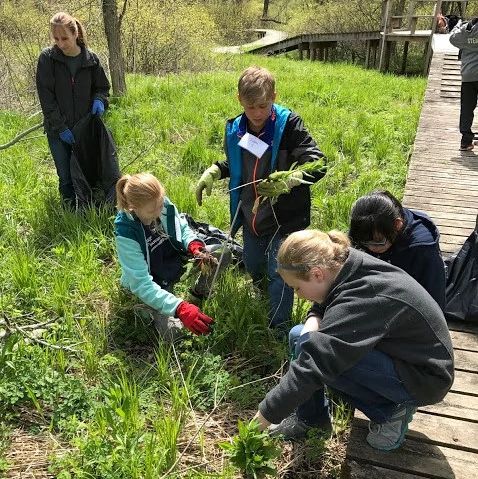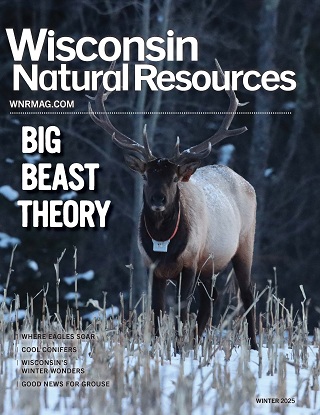Contact: Jason Granberg, DNR Natural Heritage Conservation Biologist jason.granberg@wisconsin.gov or 608-228-6482
Tara Bergeson, DNR Natural Resources Program Supervisor tara.bergeson@wisconsin.gov or 608-516-0487
Gov. Tony Evers Proclaims June Invasives Species Action Month
Take Action To Help Prevent The Spread Of Invasive Species
 Youth volunteers team up to help remove invasive species.
Photo credit: Southeastern Wisconsin Invasive Species Consortium
Youth volunteers team up to help remove invasive species.
Photo credit: Southeastern Wisconsin Invasive Species Consortium
MADISON, Wis. – The Wisconsin Department of Natural Resources (DNR) today announced Gov. Tony Evers proclaimed June as Invasive Species Action Month to encourage Wisconsinites to help prevent the introduction and spread of invasive species that harm Wisconsin’s native wildlife, wetlands, forests, prairies, lakes and rivers.
Invasive species are non-indigenous species, such as non-native plants, animals or pathogens, whose introduction causes or is likely to cause economic or environmental harm or harm to human health.
Humans move organisms around all the time, often without realizing it. When a non-native species is introduced to a new location, the species can take over and spread rapidly and widely throughout the area. When this happens, the spread can cause significant damage to the native ecosystem.
Some non-native species pose a direct threat to human or livestock health by either direct contact or ingestion. More information about the impacts of invasive species is available on the DNR website.
In his proclamation, Gov. Evers recognizes the environmental and economic damages caused by invasives plants and animals throughout the state.
“Millions of dollars, both public and private, are spent each year on the control of invasive plant and animal species in Wisconsin’s waters, wild lands, agricultural lands, and urbans areas,” Gov. Evers said.
Invasive species can succeed because they often leave their predators and competitors behind in their native ecosystems. Without these natural checks and balances, they can reproduce rapidly and out-compete native species.
In response, the DNR is working with citizens and partners to slow the spread of invasive species through educational outreach, strategic planning and active management.
Information on how individuals and organizations can report, prevent and help control the spread of invasive species is available on the DNR's Invasive Species webpage.

